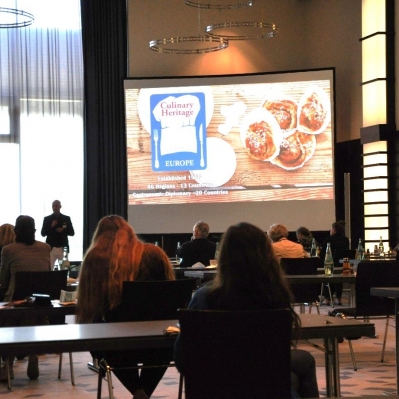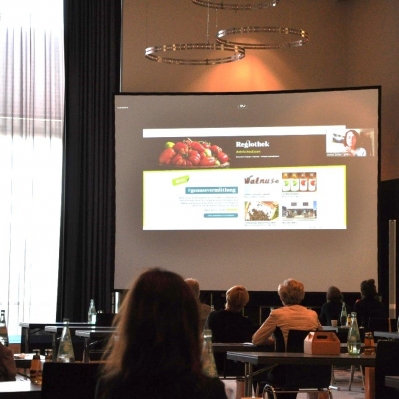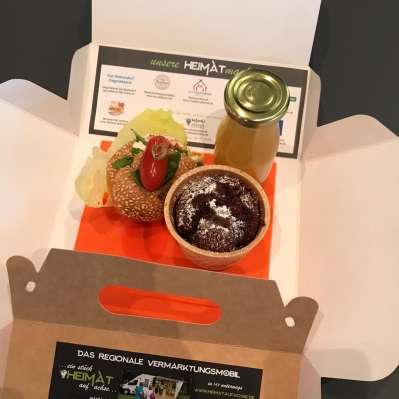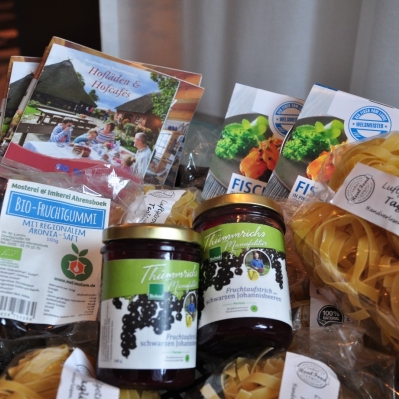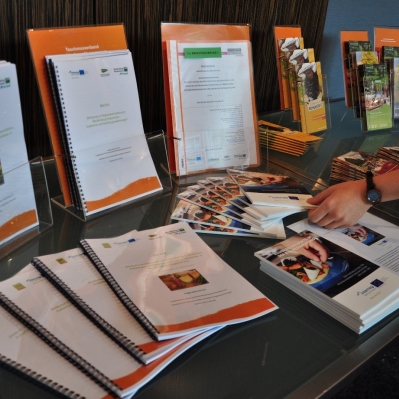
The German project partner presented the outcomes of three "Baltic Sea Food" years on 16th of September 2020 at a Closing Event in Rostock. Fortunately, the current local Covid 19 situation allowed for a live gathering at a hotel conference room. Over 35 interested project partners and regional stakeholders followed the project review and a series of lectures about B2B marketing of local products: Best practice examples from Sweden and Bavaria pointed out opportunities for future development. Both speakers, Niclas Fjellström from Ystad, and Heike Zeller from Heu agency, also answered questions from the audience of local food networks, researchers, private initiatives and public projects, tourism representatives and journalists. All food networks brought some local products that went into a goodie bag for the participants – a warmly welcomed alternative to tastings, which are currently forbidden.
The Closing Event also looked into the future: Based on the project´s insights, the German project partner, Tourismusverband Mecklenburg-Vorpommern, wants to network and lobby for a future strategic approach to regional development in the Federal State of Mecklenburg-Vorpommern, similar to Austrian Tyrol. There they managed to forge rural development, local product marketing, agricultural and tourism development into one strategy that the whole Tyrol region profits from and that pushes local products at all levels. On the short run, local products will already play an important role in the implementation of Mecklenburg-Vorpommern´s new tourism strategy, as Cornelia Hass from the State Ministry of Economics pointed out: a sustainable tourism development needs a successful B2B and B2C marketing of local products. And for that, as Baltic Sea Food project showed, structural changes are needed to overcome the existing obstacles, the gaps in regional value creation chains and to foster a diverse supply with local products and a robust demand for them.

.jpg)
